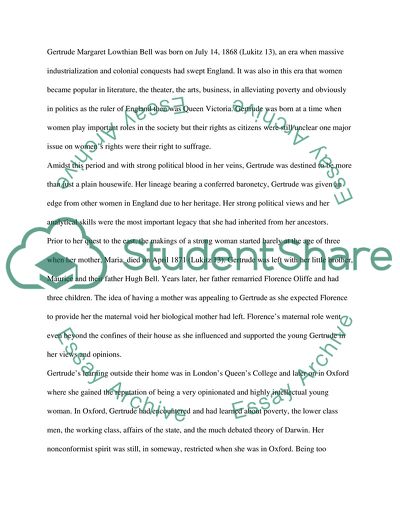Cite this document
(Gertrude Bell Assignment Example | Topics and Well Written Essays - 1750 words, n.d.)
Gertrude Bell Assignment Example | Topics and Well Written Essays - 1750 words. https://studentshare.org/history/1718591-gertrude-bell
Gertrude Bell Assignment Example | Topics and Well Written Essays - 1750 words. https://studentshare.org/history/1718591-gertrude-bell
(Gertrude Bell Assignment Example | Topics and Well Written Essays - 1750 Words)
Gertrude Bell Assignment Example | Topics and Well Written Essays - 1750 Words. https://studentshare.org/history/1718591-gertrude-bell.
Gertrude Bell Assignment Example | Topics and Well Written Essays - 1750 Words. https://studentshare.org/history/1718591-gertrude-bell.
“Gertrude Bell Assignment Example | Topics and Well Written Essays - 1750 Words”. https://studentshare.org/history/1718591-gertrude-bell.


